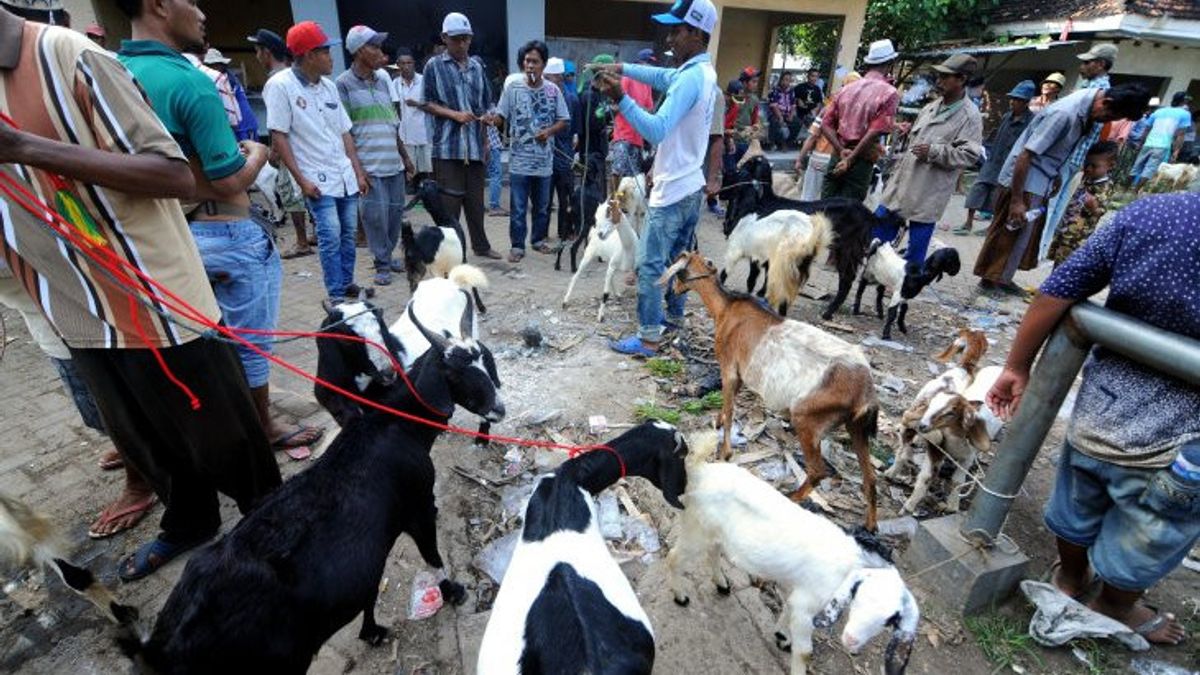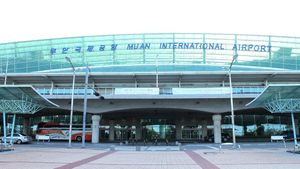KULON PROGO - Livestock traders in Kulon Progo Regency have complained about the Animal Health Certificate (SKKH) which is the authority of the Kulon Progo Agriculture and Food Service.
As a result, the SKKH did not come down, traders could not take their livestock out of the area.
One of those who complained about the livestock trader in Sukoreno Village, Olan Suparlan. He asked the relevant agencies to examine the livestock of traders and if they are healthy, immediately issue SKKH.
The reason is, to get the SKKH, Suparlan said, traders must carry out laboratory tests at the Wates Veterinary Center (BBVet) at a fairly expensive cost.
"Laboratory testing takes a long time and costs a lot. We ask the Kulon Progo Regency Government to make it easier for traders to process SKKH for livestock that will be sold outside the region and imported from outside the region," said Suparlan in Kulon Progo, Yogyakarta Special Region (DIY), quoted as saying from Antara, Monday 20 June.
He questioned the reason why there should be a laboratory test to get the SKKH. He also questioned the ability of BBVet Wates to conduct laboratory tests on livestock in one day.
"If the ability of BBVet Wates is very limited, why does it require SKKH with laboratory test results," he said.
He said that currently, livestock from Bali have entered Kulon Progo, but livestock from Kulon Progo cannot get out because the Agriculture and Food Service did not issue SKKH.
To prepare for this year's sacrificial animals, he brought sacrificial animals from Gunung Kidul and Kebumen.
The price of livestock has increased quite high, ranging from Rp. 5 million to Rp. 8 million per head. Currently, the price of livestock for sacrifice ranges from Rp. 23 million to Rp. 24 million for medium-sized cattle, and for large-sized cows, around Rp. 30 million.
"I have sold 70 cows for sacrifice. There is a lot of demand for sacrificial animals, but we are having a hard time getting sacrificial animals from outside the region, afraid of suspected foot and mouth disease," he said.
Head of the Kulon Progo Agriculture and Food Service Aris Nugraha said joint officers from the DPP and the National Police were monitoring livestock traffic in and out of Kulon Progo, including the Merciful Integrated Animal Market.
Animal health officers also carry out routine checks on livestock that are suspected and positive for foot and mouth disease (FMD).
"The Kulon Progo DPP has a standard operating procedure (SOP). Animals that enter its territory must be accompanied by an animal health certificate (SKKH) from the area of origin and not from the outbreak area," he said.
The English, Chinese, Japanese, Arabic, and French versions are automatically generated by the AI. So there may still be inaccuracies in translating, please always see Indonesian as our main language. (system supported by DigitalSiber.id)













